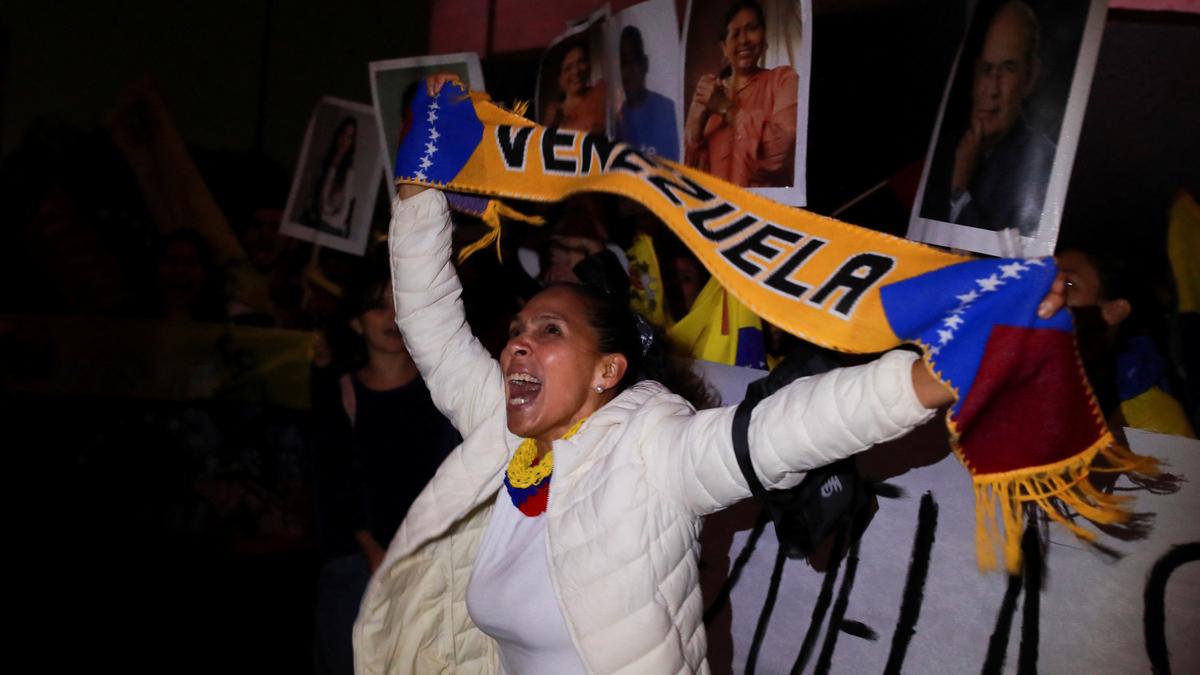The disputed presidential election in Venezuela, held on July 28th, 2024, triggered widespread protests and a subsequent crackdown by the government of Nicolás Maduro. Over 700 individuals arrested during these demonstrations have been transferred to maximum security prisons, raising concerns about their safety and the potential for abuse. The Venezuelan Prisons Observatory, a human rights group, has denounced these transfers as irregular and opaque, with families and legal counsel denied access to detainees.
A Crackdown on Dissent
The transfer of over 700 detainees, many of whom have been labelled as political prisoners, to notoriously dangerous prisons like Tocuyito and Tocoron, previously under the control of gangs, marks a disturbing escalation in the government’s response to the ongoing unrest. These facilities are notorious for their harsh conditions, violence, and lack of basic necessities.
The Transfer Process
The transfers took place over a week, with detainees’ relatives kept in the dark about their loved ones’ whereabouts. This lack of transparency exacerbates concerns about potential abuses and the safety of those incarcerated.
International Condemnation
The international community has condemned the Maduro government’s actions, with the United States, the European Union, and several Latin American countries refusing to recognize Maduro’s legitimacy as President. These entities have called for the release of all political prisoners and for the government to conduct transparent investigations into the alleged abuses and violence that occurred during the protests.
A Deepening Crisis
The situation in Venezuela represents a deepening crisis, marked by political repression, human rights violations, and an economic collapse. The government’s response to the post-election protests has been met with widespread condemnation from international organizations and human rights groups, highlighting the escalating human rights violations in the country.
The Political Context
The protests were sparked by the opposition’s claims that the July 28th election was rigged in favor of Maduro. Despite widespread international pressure to release detailed voting results, the Maduro government has refused, further fueling accusations of electoral fraud and authoritarianism.
The Human Cost
The unrest has left a trail of devastation, with 27 people confirmed dead and over 192 injured. This tragedy underscores the dangers of political repression and the importance of upholding fundamental human rights, including the right to freedom of expression, peaceful assembly, and a fair and transparent electoral process.
A Call for Justice and Transparency
The international community must continue to pressure the Maduro government to respect the human rights of its citizens, release all political prisoners, and investigate alleged abuses. It is crucial for international organizations to monitor the situation closely and provide support to victims and their families.
The Peril of Detention
The transfer of detainees to maximum security prisons raises significant concerns about their well-being and the risk of further human rights violations. Prisoners are deprived of basic necessities, subject to violence, and denied access to their families and legal representation. These harsh conditions exacerbate the trauma and suffering already experienced by those detained during the protests.
The Impact on Families
Families of the detainees are left in a state of uncertainty and despair, unable to communicate with their loved ones or receive information about their well-being. The lack of communication only intensifies their fear and anxiety.
Takeaways
- The transfer of over 700 individuals arrested during the Venezuelan protests to maximum security prisons represents a disturbing escalation in the government’s crackdown on dissent.
- This move raises significant concerns about the safety and well-being of detainees, who are at risk of abuse and exploitation in these notoriously dangerous facilities.
- The lack of transparency surrounding the transfers and the denial of access to detainees’ families and attorneys highlight the government’s disregard for fundamental human rights.
- The situation in Venezuela underscores the urgent need for international pressure on the Maduro government to respect the human rights of its citizens, release political prisoners, and conduct transparent investigations into alleged abuses.









